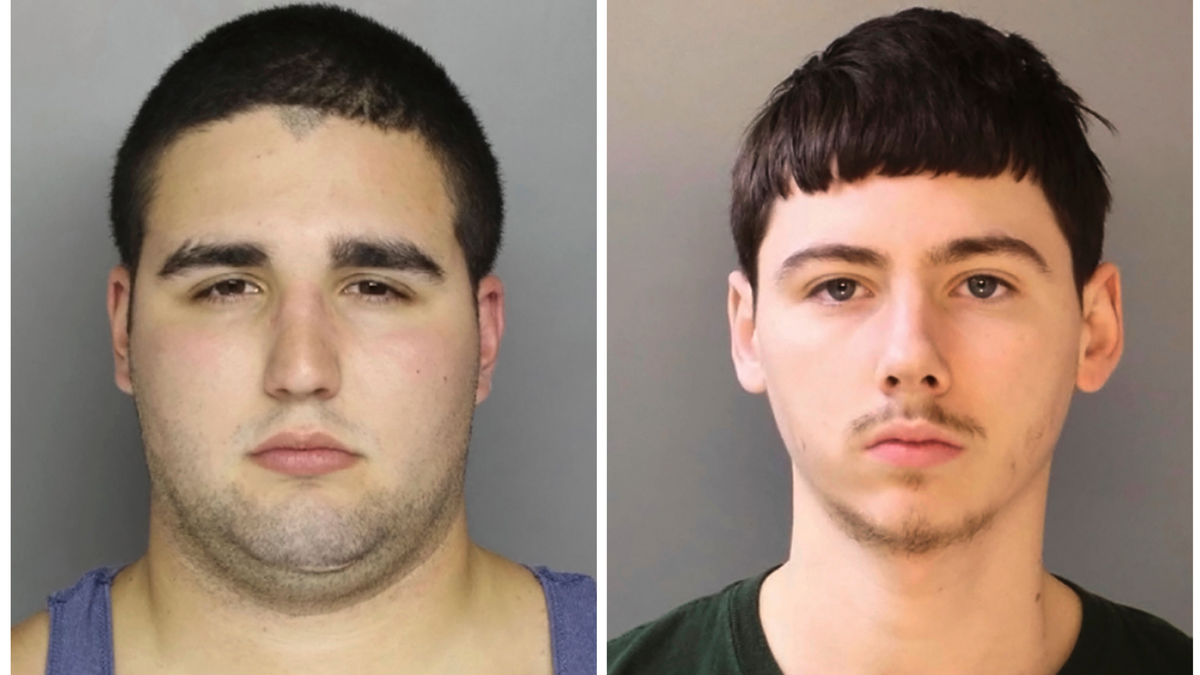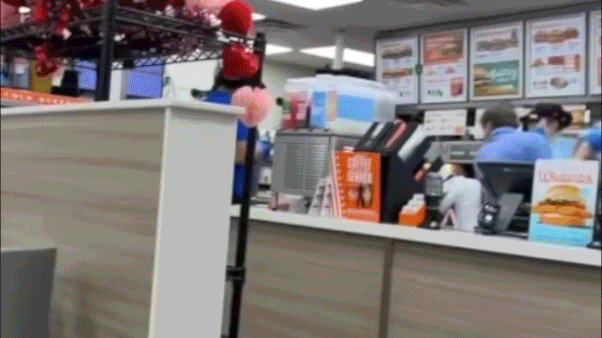
DOYLESTOWN, Pa. – A day of reckoning for two cousins accused of brutally killing four young men on a farm last summer was upended Wednesday when one of them reneged on a plea deal, a stunning turn that had prosecutors seeking the death penalty and considering his cousin as a star witness at his trial.
Sean Kratz was accused of helping his cousin Cosmo DiNardo in a plot that involved luring the men to the family farm in suburban Philadelphia, ambushing and killing them, burning their bodies and crushing one with a backhoe before burying them. After the killings, prosecutors said, Kratz and DiNardo, both 21 years old, went for cheesesteaks.
Kratz rejected an offer that would have put him in prison for at least 59 years for the crimes.
"Unexpected outcome," said Kratz's lawyer, Craig Penglase.
DiNardo, who earlier Wednesday pleaded guilty to four counts of murder in exchange for a life sentence, could be forced to testify at Kratz's trial as part of his agreement to cooperate with prosecutors, District Attorney Matthew Weintraub said.
Kratz gave a videotaped confession during plea negotiations detailing his involvement, Weintraub said, and prosecutors will seek to use the recording as evidence at his trial.
Authorities saw DiNardo, a mentally disturbed son of wealthy parents, as the mastermind of the plot and charged him in all four deaths. Kratz was charged in three of the deaths but would have pleaded guilty to murder and conspiracy charges related to one victim, Dean Finocchiaro, who was 19.
Weintraub said the deal Kratz rejected was a final offer and won't be revisited unless the victims' families ask for that. The families were stunned by Kratz's decision.
"The families came here today expecting that this would be behind them," said Tom Kline, a lawyer for Finocchiaro's family.
No trial date has been set.
DiNardo confessed during a grueling five-day search last July and agreed to help authorities find the body of his first victim, Loyola University Maryland student Jimi Taro Patrick, 19, in exchange for avoiding the death penalty. His plea gave solace to a grieving father, who turned to the stone-faced killer and told him: "Your only way out of prison is wearing a toe tag."
"That's the least we all deserve," said Mark Potash, the father of victim, Mark Sturgis, 22.
Melissa Fratanduono, the mother of victim Tom Meo, 21, cursed at DiNardo, saying it has "taken everything" for her not to kill him.
DiNardo has a history of mental illness, including an involuntary commitment and a schizophrenia diagnosis, but his lawyer said mental health professionals weren't sure they could have presented an insanity defense.
"Mental illness is real, mental illness is sad, and sometimes it can be tragic," lawyer Fortunato Perri said.
DiNardo, who dabbled in dealing marijuana and customizing sneakers, portrayed himself on social media as "a savage." He showed himself holding guns and sent aggressive messages to women he found attractive.
Potash called DiNardo a "perfect example of someone who started at the top and worked your way down to the gutter."
"You think you're savage?" Potash said. "You've lived your whole life protected. In prison, you'll meet savage. And I promise you, it won't look like you."
The bodies of Sturgis, Meo and Finocchiaro were lit on fire and placed 12 feet (3 meters) deep in an oil tank converted into a cooker DiNardo called the "pig roaster."
Patrick's grandparents, who had raised him since birth, asked DiNardo to pray for them and for his mother, who they said is mentally ill, so they might be able to forgive him.
"My heart is broken, and I will never, ever be the same," grandmother Sharon Patrick said.
DiNardo was expressionless as he pleaded guilty to charges including first-degree murder, conspiracy, robbery and abuse of a corpse.
"If there is anything I could do to take it back, I would," he said. "I cannot come to terms with what occurred. I'm so sorry."
Judge Jeffrey Finley dismissed that as "false and insincere." He said he listened to an audio recording of DiNardo's confession and was struck by the lack of emotion and remorse in his voice.
The families of the slain men are suing DiNardo's parents, Antonio and Sandra DiNardo, who own the Solebury farm property and construction and concrete companies in Bensalem, where they live. They say DiNardo's parents shouldn't have allowed him access to a gun, which was barred by law due to his commitment. Investigators say he used at least two guns in the killings.
Finocchiaro's father, Anthony Finocchiaro, told DiNardo his family had "received a life sentence."
"I pray," he said, "that Dean's spirit haunts you the rest of your miserable life."









































